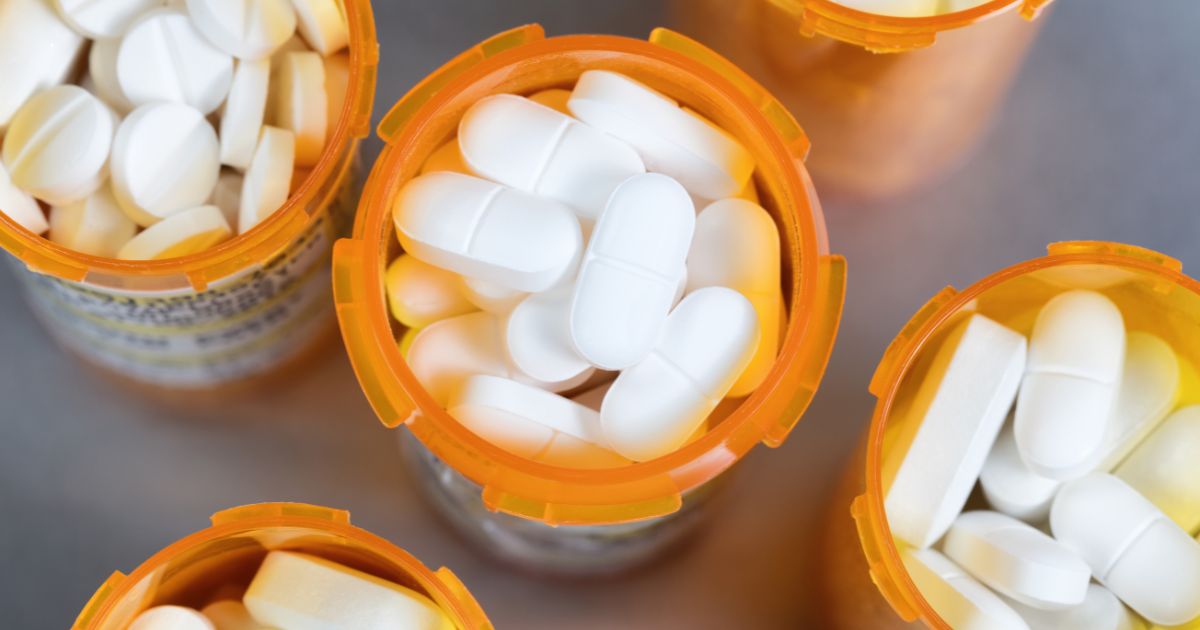Of all the visible signs of methamphetamine abuse, meth mouth may be one of the most disturbing. Meth mouth, also known as “crank decay,” is a form of advanced oral decay brought on by methamphetamine addiction.
What Is Meth Mouth?
Meth mouth is a term used to describe the severe dental problems that result from chronic methamphetamine use. Methamphetamine, often called “meth,” is a highly addictive stimulant drug.
The dental issues associated with meth mouth include:
- Severe tooth decay
- Tooth loss
- Cracked or broken teeth: Meth users often clench and grind their teeth (bruxism), which can lead to teeth cracking or breaking.
- Gum disease
- Dry mouth (xerostomia): Meth decreases saliva production, which normally helps protect teeth from decay. Without sufficient saliva, the risk of dental problems increases.
- Poor oral hygiene
The combination of meth’s chemical effects and poor self-care due to the addiction is what leads to meth mouth. It’s considered a visible sign of long-term meth abuse.
What Does Meth Do to the Body?
Meth absolutely wrecks the body in a variety of ways. The intense dopamine ruse meth leads to, over time, damaging the brain’s dopamine receptors. This makes it difficult to feel pleasure naturally – a condition known as anhedonia. This condition can be treated, but it requires the help of professionals, and it won’t go away on its own.
Abuse of methamphetamine over an extended period of time can cause permanent harm to brain cells, especially those responsible for the control of dopamine and serotonin. Depression, memory loss, cognitive decline, and an elevated risk of Parkinson’s disease can result from this. Parkinson’s disease is twice as likely to occur in meth users than in non-users.
Being a stimulant, meth will also massively jack up your heart rate and blood pressure. This puts you at risk of heart attacks, strokes, and other issues. Since meth addiction is very often correlated with homelessness and, thus, exposure to the elements, these issues can be compounded during the summer months.
People addicted to meth also often experience serious delusions to do with their skin. They report the disturbing feeling that insects are crawling under the skin. This leads to incessant scratching and picking, leading to “meth sores” – nasty abscesses caused by obsessive scratching and picking.
Finally, like all stimulants, methamphetamine suppresses appetite. Once a person is addicted, especially if they also lose their job, they’re unlikely to eat as often or as healthily as they should, leading to dramatic weight loss and malnutrition.
Is Meth Mouth Treatable?
Somewhat. It depends on the severity of the decay. People who have used methamphetamine for a long time often experience severe tooth decay, gum disease, and tooth loss, so the treatment process can be extensive and expensive.
In mild cases, all that may be needed is a thorough tooth cleaning by a dentist. However, if cavities are an issue, that will require fillings; severely damaged teeth may need crowns. If the teeth are too decayed, they may need to be replaced entirely. Likewise, severe gum disease may necessitate surgery to repair damaged gums or bones (gum disease can spread to these areas).
Obviously, the more extensive the issues, the more expensive the dental work may be. Rebuilding a healthy smile from meth mouth may require multiple dental procedures, from fillings to implants, which can be financially overwhelming.
Other Oral Problems Caused by Meth
Aside from meth mouth, methamphetamine use can cause a range of other oral problems, including teeth-grinding (bruxism), jaw pain, and trismus.
These issues, combined with meth mouth, further contribute to oral health deterioration. For example, teeth-grinding wears down enamel, making teeth more vulnerable to cavities and decay. It can also lead to tooth sensitivity, making it painful to eat. That, in turn, can exacerbate any malnutrition issues already associated with meth addiction.
Get confidential help from our addiction treatment specialists in Orange County. Call to join our rehab program today!
Call 866-881-1184How Does Meth Mouth Happen?
When someone first tries meth, the initial effects may seem harmless to their oral health, but in fact, the drug starts causing damage almost immediately. From the very first use, meth can induce bruxism, leading to damage to the enamel.
After just a few uses, meth can lead to xerostomia – “dry mouth.” Saliva is crucial for neutralizing acids in the mouth, washing away food particles, and protecting tooth enamel. With less saliva, the mouth becomes more acidic, and bacteria thrive, making teeth vulnerable to rapid decay. This is a red flag that oral health is beginning to deteriorate.
A few weeks into regular use, the effects on teeth and gums begin to get worse. Those addicted to meth will see an increase in plaque, cavities, and gum inflammation. Dietary changes will exacerbate this. Meth users often crave sugary foods and drinks due to meth’s effects on appetite and energy levels. The high sugar intake, combined with poor oral hygiene and reduced saliva, accelerates tooth decay.
A few months to a year into meth addiction, meth mouth will become fully apparent, with blackened teeth, cavities, and tooth erosion well underway. Mouth sores and ulcers will begin to form on the mouth and lips. Onward from this point, a person may experience gum recession, bone loss, and painful abscesses around the roots of their decayed teeth.
Get Help for Meth Abuse
If you or a loved one are seeking treatment for addiction, South Coast Behavioral Health is here to help. The first step in treating addiction is a medical detox. This means using drugs to manage withdrawal symptoms.
Our medical detox program in California is staffed by caring and compassionate professionals who can provide you with medications to manage your withdrawal symptoms.
At South Coast, we take pride in offering care that is closely tailored to specific issues. To that end, we offer gender-specific detox programs, with medical detox for men in Irvine, CA, and medical detox for women in Huntington Beach, CA.
After detoxing, proper treatment can begin.
Looking for quality substance abuse treatment that’s also affordable? South Coast accepts most major insurance providers. Get a free insurance benefits check now.
Check Your CoverageTreatment for substance abuse takes place along an entire spectrum of care. Along that entire spectrum are various behavioral therapies, support groups, and the use of medically-assisted treatment (MAT).
These levels of treatment are, in order, as follows:
Residential Treatment in California
After successfully completing medical detox, you’ll receive inpatient treatment in Orange County, California. There, you’ll receive medically-assisted treatment and dual diagnosis treatment to deal with any cravings or co-occurring mental health issues you may be battling.
We also offer residential treatment facilities in Costa Mesa, Irvine, and Huntington Beach for those who desire gender-specific treatment. There, patients get round-the-clock medical attention and monitoring while living at the institution full-time.
In addition to individual and group counseling and medication management, you’ll also have access to leisure activities and family support services.
Partial Hospitalization in California
Most clients start substance abuse treatment with South Coast in our residential treatment program. After completing that, many desire something that still provides structure and support but with extra space and time to oneself. For that, we offer Partial Hospitalization in Newport Beach.
A step down from inpatient care but with more structure than conventional outpatient programs, partial hospitalization offers a good balance for those looking to ease back into normal life. Clients can receive care five to seven days a week for a number of hours each day, returning back to their homes in the evening.
This way, they can recover without putting their daily lives completely on hold, receiving intense therapeutic interventions like group and individual therapy, skill development, and medication management as necessary.
Intensive Outpatient Treatment in California
For those leaving inpatient residential treatment or partial hospitalization, intensive outpatient programs (IOP) are yet another gradual step forward on the road to recovery.
With a focus on group therapy, individual counseling, and education, clients undergoing Intensive Outpatient Treatment in Newport Beach at our treatment center can meet three to five days a week. Each session lasts three hours.
This level of care requires the least amount of attendance at a facility for meth addiction treatment.
Get Started Today
If you or a loved one are struggling with crystal meth addiction but wonder how long addiction treatment takes or have other questions about our addiction therapies, call us at 866-881-1184 or contact us here. Our highly qualified alcohol and drug recovery staff will be happy to help give you an idea of what to expect from your addiction recovery timeline, help verify your insurance, and assist with any other questions about the dangerous effect of meth on someone’s life.









